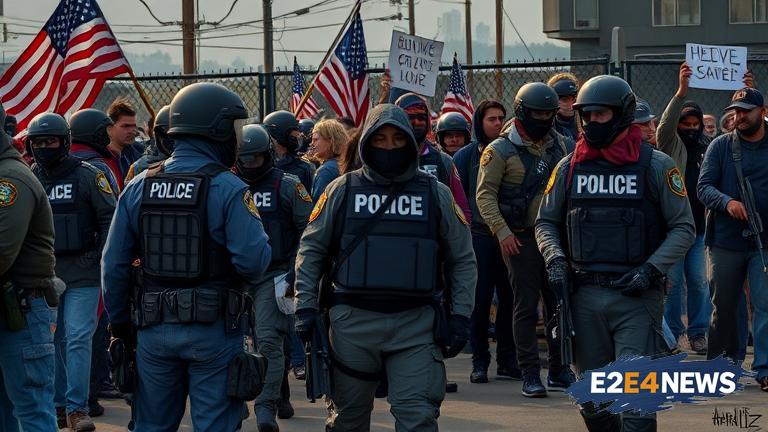The United States has witnessed a significant surge in immigration arrests, prompting outrage and fear within affected communities. The arrests, carried out by Immigration and Customs Enforcement (ICE), have been characterized by their sudden and often aggressive nature, leaving many to question the methods and motivations behind these actions. Community leaders and advocacy groups have been vocal in their criticism, arguing that such tactics not only undermine trust in law enforcement but also have a detrimental impact on the social fabric of the communities involved. The issue has sparked a national debate, with many calling for comprehensive immigration reform and an end to what they perceive as inhumane treatment of undocumented immigrants. Proponents of stricter immigration policies, however, argue that these measures are necessary for national security and the enforcement of immigration laws. The situation has become increasingly politicized, with political leaders on both sides of the aisle weighing in on the issue. Despite the controversy, ICE maintains that its operations are targeted and based on intelligence, aiming to apprehend individuals who pose a threat to public safety or have been identified for deportation. Critics counter that the broad nature of these arrests often results in the detention of individuals with no criminal history, causing unnecessary hardship for families and communities. The economic impact of these arrests is also a concern, as the removal of working individuals can affect local economies and the stability of businesses that rely on immigrant labor. Furthermore, the psychological toll on families and children cannot be overstated, with many experiencing trauma and anxiety as a result of these enforcement actions. The legal community has also been involved, with several lawsuits filed against ICE and the Department of Homeland Security, challenging the legality and constitutionality of certain arrest and detention practices. As the situation continues to unfold, there is a growing demand for transparency and accountability from ICE and federal authorities. The international community is also watching closely, with some countries expressing concern over the treatment of their citizens and the potential implications for bilateral relations. In response to the backlash, some cities and states have adopted sanctuary policies, limiting their cooperation with federal immigration authorities in an effort to protect residents from what they see as unjust enforcement. This move has been met with resistance from the federal government, which has threatened to withhold funding from jurisdictions that do not comply with ICE requests. The conflict between federal and local authorities highlights the complex and often contentious nature of immigration policy in the US. As discussions around immigration reform continue, it remains to be seen how the current administration and future governments will navigate these challenges. The path forward will likely involve a delicate balance between enforcing immigration laws, protecting national security, and respecting the rights and dignity of all individuals, regardless of their immigration status. In the meantime, communities affected by these arrests will continue to advocate for their rights and push for policies that promote understanding, inclusion, and justice. The role of media and public discourse will be crucial in shaping the narrative around immigration and influencing policy decisions. Ultimately, finding a solution that addresses the concerns of all stakeholders while upholding the principles of fairness and humanity will be essential for healing the divisions that have emerged over this issue. The future of immigration policy in the US will depend on the ability of political leaders to engage in constructive dialogue and work towards solutions that reflect the complexity and nuance of the issue. Until then, the debate will continue, with the lives and futures of many hanging in the balance.





